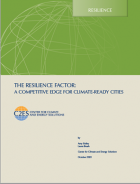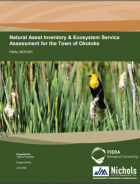Feenstra, G. (2002). Creating space for sustainable food systems: Lessons from the field. Agriculture and human values, 19(2), 99-106.
In response to growing trends in the current food system toward global integration, economic consolidation, and environmental degradation, communities have initiated alternative, more sustainable food and agricultural systems. Lessons may now be learned about the development and maintenance of local, sustainable food systems projects –those that attempt to integrate the environmental, economic, and social health of their food systems in particular places. Four kinds of space need to be created and protected– social space, political space, intellectual space, and economic space. Three important themes emerge from these community spaces: public participation, new partnerships, and a commitment to social, economic, and environmental justice principles.
Feenstra, G. W. (1997). Local food systems and sustainable communities. American journal of alternative agriculture, 12(1), 28-36.
The long-term health of a community's food system is an important indicator of its vitality and sustainability. A logical and appropriate way to revitalize a community is by the development of a local food economy. People throughout the United States are designing and implementing sustainable, local food systems that are rooted in particular places, aim to be economically viable for farmers and consumers, use ecologically sound production and distribution practices, and enhance social equity and democracy for all members of the community. This paper reviews the existing literature on local food systems, examines a variety of strategies and initiatives that are currently underway, and identifies steps that community leaders and citizens can use to develop their own local food systems. Finally, I suggest what research is needed to support these community efforts.
Francis, C., Lieblein, G., Gliessman, S., Breland, T. A., Creamer, N., Harwood, R., ... & Wiedenhoeft, M. (2003). Agroecology: The ecology of food systems. Journal of sustainable agriculture, 22(3), 99-118.
We present a compelling rationale for defining agroecology as the ecology of food systems. Our purpose is to provide a framework that will guide research, education, and action in the multiple and interacting facets of an increasingly complex global agriculture and food system. To accomplish such goals, it is essential to build bridges and connections among and beyond our disciplines in production agriculture, as well as beyond the farm gate into the rural landscape and community. Fields of sociology, anthropology, environmental sciences, ethics, and economics are crucial to the mix. They provide additional vantage points from which we can view the food system anew, as well as insights on how to establish valuation criteria beyond neoclassical economics.
Gliessman, S. R. (2014). Agroecology: the ecology of sustainable food systems. CRC press.
Providing the theoretical and conceptual framework for this continually evolving field, Agroecology: The Ecology of Sustainable Food Systems, Second Edition explores environmental factors and complexities affecting agricultural crops and animals. Completely revised, updated, and reworked, the second edition contains new data, new readings, new...
Koc, M., MacRae, R., Welsh, J., & Mougeot, L. J. (Eds.). (1999). For hunger-proof cities: Sustainable urban food systems. IDRC.
Morawicki, R.O. & Díaz González, D.J. (2018). Food sustainability in the context of human behavior. Yale Journal of Biology and Medicine, 91(2), 191–196.
The long-term goal of food sustainability is to produce enough food to maintain the human population. The intrinsic factors to guarantee a sustainable food system are a fertile land, water, fertilizers, a stable climate, and energy. However, as the world population grows, the volume of food needed in the future will not depend just on these intrinsic factors, but on human choices. This paper analyzes some of the human actions that may affect the sustainable future of the food supply chain, including diet, obesity, food miles, food waste, and genetically modified organisms.
Welsh, J. & MacRae (1998). Food citizenship and community food security: Lessons from Toronto, Canada. Canadian Journal of Development Studies / Revue canadienne d'études du développement, 19(4). 237-255.
The Toronto Food Policy Council (TFPC) was created in 1990 as a vehicle for “food citizenship.” Its creators challenged the assumptions that hunger was mainly a problem of income and that the food system was nourishing all Canadians adequately. Working from a vision of food security based on both social justice and environmental sustainability, the TFPC was designed to be multi-sectoral and cross-jurisdictional, and to support project innovation and policy advocacy. The paper develops the concept of “food citizenship,” emphasizing the need to move beyond food as a commodity and people as consumers. Critiques of corporate control and a loss of food skills, or “de-skilling,” within the public, and the limits of anti-hunger advocacy, or charity for achieving food security are offered.






